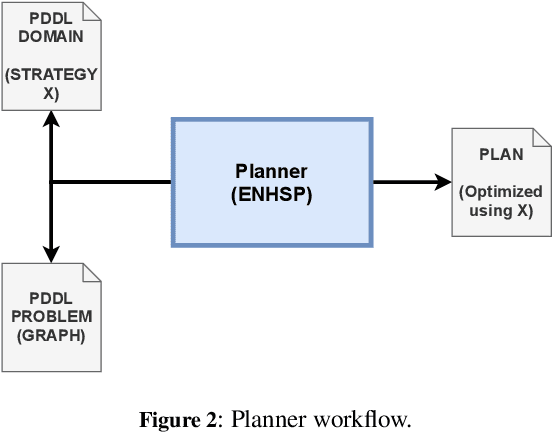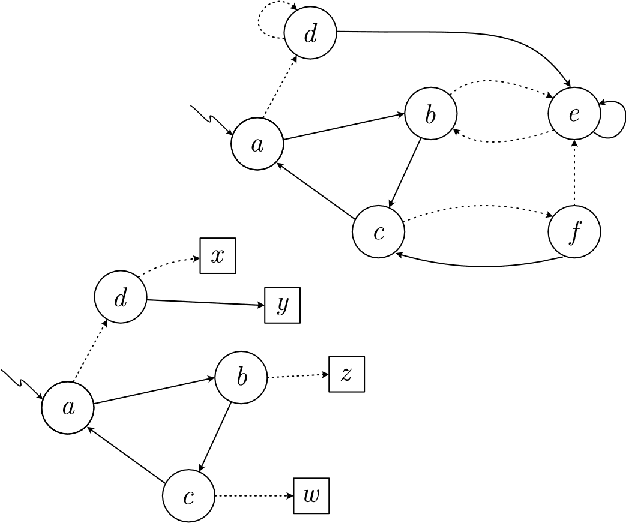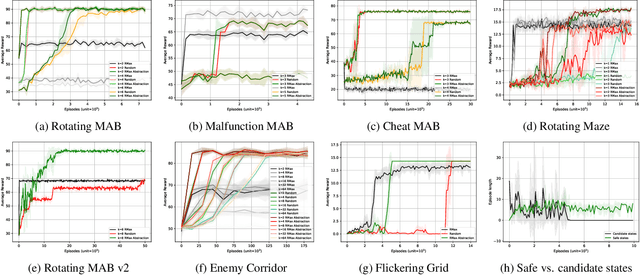Gabriel Paludo Licks
Automated Planning for Optimal Data Pipeline Instantiation
Mar 16, 2025



Abstract:Data pipeline frameworks provide abstractions for implementing sequences of data-intensive transformation operators, automating the deployment and execution of such transformations in a cluster. Deploying a data pipeline, however, requires computing resources to be allocated in a data center, ideally minimizing the overhead for communicating data and executing operators in the pipeline while considering each operator's execution requirements. In this paper, we model the problem of optimal data pipeline deployment as planning with action costs, where we propose heuristics aiming to minimize total execution time. Experimental results indicate that the heuristics can outperform the baseline deployment and that a heuristic based on connections outperforms other strategies.
Markov Abstractions for PAC Reinforcement Learning in Non-Markov Decision Processes
Apr 29, 2022

Abstract:Our work aims at developing reinforcement learning algorithms that do not rely on the Markov assumption. We consider the class of Non-Markov Decision Processes where histories can be abstracted into a finite set of states while preserving the dynamics. We call it a Markov abstraction since it induces a Markov Decision Process over a set of states that encode the non-Markov dynamics. This phenomenon underlies the recently introduced Regular Decision Processes (as well as POMDPs where only a finite number of belief states is reachable). In all such kinds of decision process, an agent that uses a Markov abstraction can rely on the Markov property to achieve optimal behaviour. We show that Markov abstractions can be learned during reinforcement learning. For these two tasks, any algorithms satisfying some basic requirements can be employed. We show that our approach has PAC guarantees when the employed algorithms have PAC guarantees, and we also provide an experimental evaluation.
Automated Database Indexing using Model-free Reinforcement Learning
Jul 25, 2020



Abstract:Configuring databases for efficient querying is a complex task, often carried out by a database administrator. Solving the problem of building indexes that truly optimize database access requires a substantial amount of database and domain knowledge, the lack of which often results in wasted space and memory for irrelevant indexes, possibly jeopardizing database performance for querying and certainly degrading performance for updating. We develop an architecture to solve the problem of automatically indexing a database by using reinforcement learning to optimize queries by indexing data throughout the lifetime of a database. In our experimental evaluation, our architecture shows superior performance compared to related work on reinforcement learning and genetic algorithms, maintaining near-optimal index configurations and efficiently scaling to large databases.
 Add to Chrome
Add to Chrome Add to Firefox
Add to Firefox Add to Edge
Add to Edge